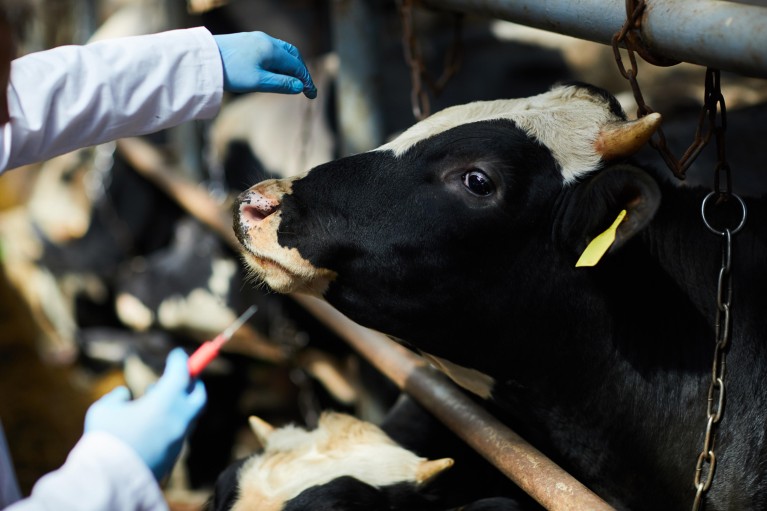
The African Union and its partners have taken a major step toward strengthening the regulation of veterinary medicines across the continent, following a three-day consultative meeting.
The meeting endorsed the creation of a Pan-African network to guide oversight of veterinary products.
Held from November 18 to 20, 2025, the meeting in Nairobi brought together Heads of National Regulatory Authorities, Chief Veterinary Officers, Regional Economic Communities and development partners.
The African Union Commission, through the African Union Inter-African Bureau, convened the meeting for Animal Resources (AU-IBAR) and the African Union Pan African Veterinary Vaccine Centre (AU-PANVAC).
Global Alliance for Livestock Veterinary Medicines (GALVmed), World Organisation for Animal Health (WOAH) and the UK Veterinary Medicines Directorate (UK VMD) supported it.
The discussions focused on how to improve access to safe, effective and affordable veterinary products for livestock keepers in Kenya and across Africa.
Speaking during the session, Chief Executive Officer GALVmed, Lois Muraguri, urged partners to prioritise the needs of smallholder farmers, who are most affected by inconsistent quality of animal health products.
“Millions of farmers depend on livestock for daily income. When the quality of veterinary products is inconsistent, they bear the cost,” she said.
“Harmonised regulation will help ensure that safe and effective products reach the people who need them most and will make the market more predictable for manufacturers and regulators alike.”
She added that clearer, predictable and harmonised regulatory systems could reduce the high cost of veterinary products and encourage more investment in local manufacturing.
Delegates reviewed the findings of a GALVmed-commissioned study on establishing a Network of Regulatory Authorities that would support harmonised oversight of veterinary products.
Consequently, they raised concern about the growing threat of antimicrobial resistance, a challenge that continues to undermine disease control efforts across the continent.
These issues, they said, have slowed productivity and hampered campaigns to eradicate trans boundary diseases such as Peste des Petits Ruminants (PPR).
Earlier this year, veterinary experts agreed on registration requirements for PPR vaccines under the continental eradication programme, signalling that harmonised approaches are both achievable and effective.
Director AU-IBAR, Huyum Salih, noted that, “Many countries still rely on human medicine regulatory frameworks due to limited capacity.”
She said this often leads to delays and uneven standards, slowing the continent’s progress in managing livestock diseases.
“Africa loses an estimated USD 4Bllion (Sh 600Billion) every year due to unrealised livestock potential. A coordinated regulatory framework will help close this gap by protecting farmers from poor quality products and strengthening countries’ ability to manage disease threats,” Salih said.
Over the next 24 months, AU and its partners will finalise the network’s terms of reference, governance framework and implementation road map.
They further noted that Africa’s livestock sector remains a vital pillar for rural households and national economies since it supports more than 350 million people.
In Kenya alone, livestock contributes 12 per cent of the country’s GDP and accounts for 42 per cent of agricultural output.
Participants also discussed the impact of misinformation on public health interventions.
Furthermore, the recent resistance to Kenya’s vaccination drive was highlighted as an example of how mistrust and false claims can disrupt disease control efforts.
Delegates stressed the need for strong oversight, credible communication and certified vaccine production facilities.
At the close of the meeting, partners endorsed the establishment of the Pan-African Regulatory Authorities Network for Veterinary Products (PARAN-VPs).
The proposed network is expected to serve as a continental platform to help countries align standards, share information and strengthen regulation of veterinary medicines.






![[PHOTOS] Betty Bayo laid to rest in Kiambu](/_next/image?url=https%3A%2F%2Fcdn.radioafrica.digital%2Fimage%2F2025%2F11%2F3b166e2e-d964-4503-8096-6b954dee1bd0.jpg&w=3840&q=100)








